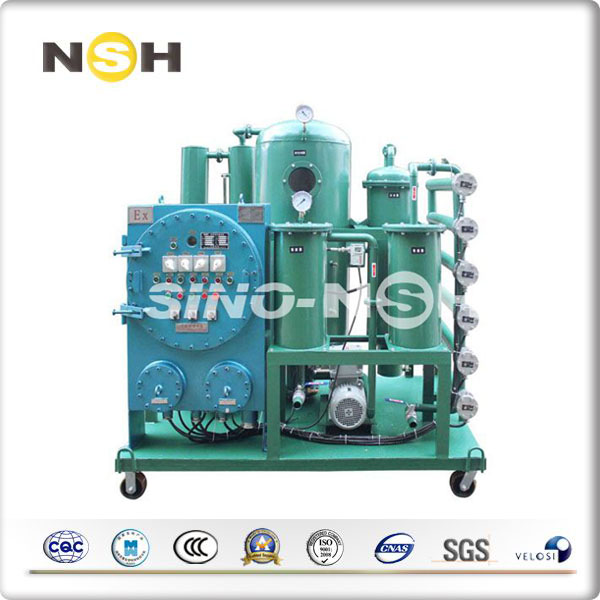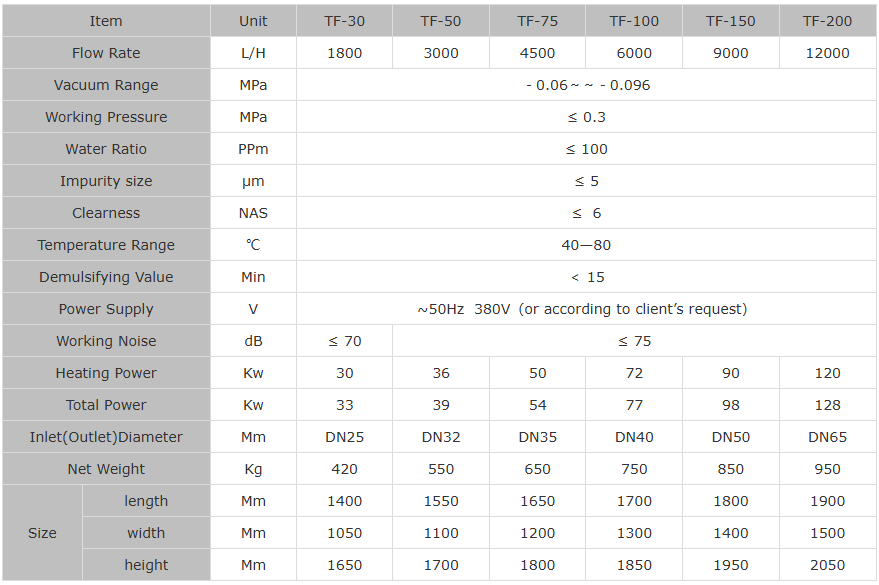E-mail seo@sino-purification.com

Time:2025-09-26 11:44:43 Reading volume:
Explosion-proof Oil Purifiers vs. Traditional Oil Purifiers: Key Differences and Selection Guide
Key Differences
The key difference between explosion-proof oil purifiers and traditional oil purifiers lies in their safety design and applicable environments:
Traditional oil purifiers → Designed for standard, non-hazardous environments such as workshops, power plants, and equipment repair centers. They focus on efficient oil filtration.
Explosion-proof oil purifiers → Designed for hazardous environments where flammable or explosive gases, liquids, or dusts are present. Their top priority is ensuring safety, with a focus on eliminating any ignition risk during operation.

Explosion-proof models are not only safer but also offer wider compliance and long-term reliability. Key advantages include:
Prevents sparks, arcs, or high temperatures that could ignite flammable gases.
Critical in industries such as petroleum, chemical, mining, and natural gas storage.
Complies with stringent national and international safety standards (e.g., China's GB 3836 series and ATEX/IECEx globally).
Using certified equipment helps businesses avoid legal risks, penalties, and downtime.
Can operate in both hazardous and safe areas.
Traditional purifiers are prohibited from use in explosive environments.
Utilizes a reinforced motor, control system, and protective housing.
Withstands harsher operating conditions and extends service life.
Using explosion-proof equipment demonstrates a commitment to safety and quality.
Enhances trust with customers, regulators, and partners.
How to Choose Between an Explosion-Proof Oil Purifier and a Conventional Oil Purifier
Your choice should depend on your operating environment:

Refineries, chemical plants, or coal mines
Underground oil tanks or gas stations
Any area with a risk of explosive gases, vapors, or dust
Choose a conventional oil purifier if your site involves:
Standard workshops or equipment rooms
Outdoor substations or power stations
Non-hazardous industrial environments
Important: Always check the equipment's explosion-proof certifications and markings. Ensure they comply with your facility's hazardous area classification. If in doubt, consult the manufacturer or a certified safety engineer.
Conclusion
Explosion-proof oil purifiers offer unparalleled safety, compliance, and reliability in explosive environments, while standard oil purifiers remain cost-effective for general applications.
The right choice depends not only on performance but also on whether the oil purifier is compatible with your operating environment. By selecting the right one, you can protect not only your equipment but also your personnel, ensuring long-term, compliant operation.
Root Causes of Loss of Control in Vacuum Oil Purification Systems
How Industrial Oil Filters Remove Water and Impurities: A Comparison of Technical Principles
How to Choose the Right Industrial Oil Purifier: A Comprehensive Buyer’s Guide
How to Choose the Right Oil Purifier for Different Oil Types?
Double-Stage Vacuum Pumping: The Complete Guide to Transformer Maintenance